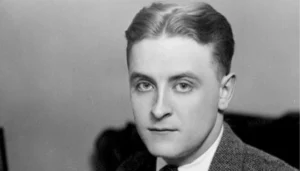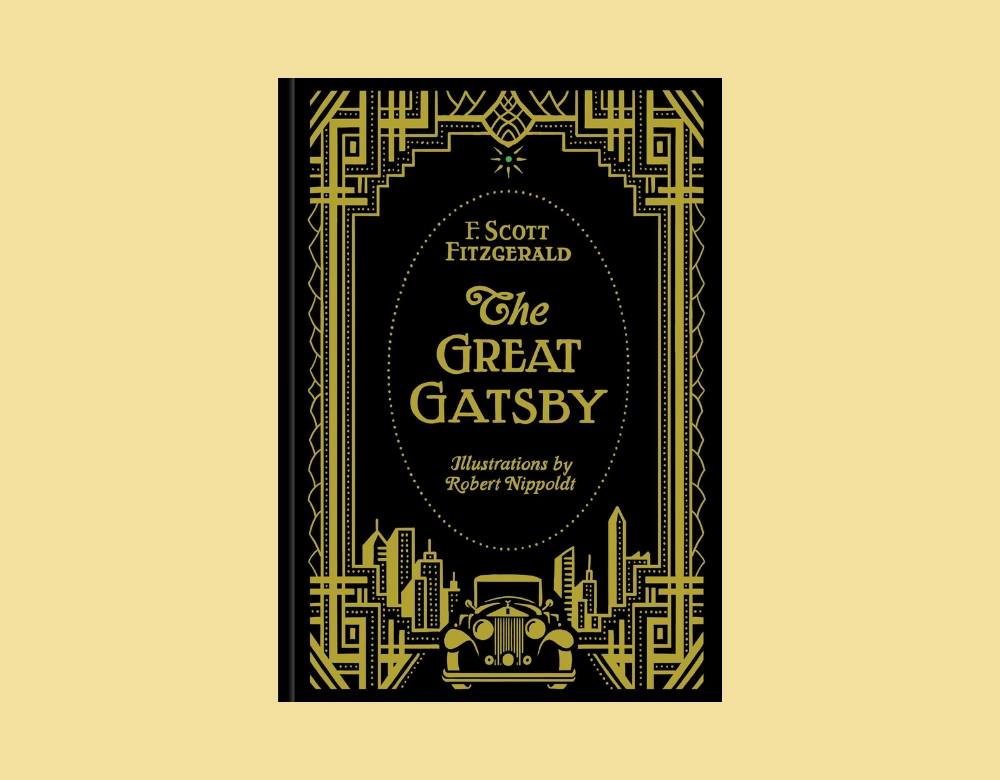F. Scott Fitzgerald: His Personal Saga and Connection to the Stage
- Scott Fitzgerald. The name itself just screams glamour and, simultaneously, a total, crushing heartbreak. Born in 1896, his life was completely intertwined with the Jazz Age, which he himself named, by the way. He and his wife, Zelda (who was just as wild as the era she embodied), were the absolute it couple of the 1920s, living this totally nuts, lavish lifestyle in New York and Europe that he then put right into his novels. Seriously, his biography is basically the source material for the tragedy of Gatsby.
- Education & Early Ambition: Went to Princeton (though he never graduated), where he started writing plays and was basically obsessed with becoming rich and famous, which is, ironically, the exact thing Gatsby is all about.
- Zelda: His relationship with Zelda was totally passionate but utterly destructive, riddled with money troubles and mental health crises (on her side, mostly). This intense personal drama fueled his best work.
- Theatre Connection: Though known for novels, Fitzgerald actually wrote some dramatic works and clearly understood the dramatic tension of a high-society scandal. The novel itself is incredibly cinematic, built around huge, tense scenes (the hotel room confrontation, the car crash). That’s not an accident.
Fitzgerald’s Whole Deal: What Did He Really Believe?
Fitzgerald’s philosophy is pretty simple, honestly, but also incredibly sad: He believed in the American Dream, but he watched it get completely corrupted by greed and materialism. He was a moralist disguised as a partying hedonist. He wasn’t celebrating the 1920s; he was totally mourning the beautiful potential that wealth destroyed.
| Core Philosophical Theme | What it Means in the Context of Gatsby |
| The Lost Dream | The American Dream started as the idea of upward mobility through honest work, right? But in the 1920s, it became the pursuit of stuff and status. Gatsby chases a dream that’s already dead. |
| Innocence vs. Experience | Gatsby’s innocent belief that money can buy back the past is crushed by the cynical, old wealth of the East Eggers (the Buchanans). Innocence loses. Badly. |
| The Pervasiveness of Class | You can buy a mansion, but you can’t buy class. There’s a huge, insurmountable wall between Old Money (Tom) and New Money (Gatsby). Tom wins because his money is old money; it’s establishment. |
| The Tyranny of the Past | Gatsby’s entire life is built on trying to repeat five years ago. He is totally incapable of living in the present, which is super tragic. You can’t recreate your youth. |
Required Reading: Why Gatsby is Non-Negotiable

Why University Students Must Grapple with This Novel
If you’re studying American history, literature, or sociology, the analysis of The Great Gatsby is just a fundamental requirement, seriously. It’s a slim book, but it packs this absolutely devastating punch regarding the moral state of the country. It’s the perfect lens through which to examine the fallout of the Gilded Age and the shallow excesses of the Jazz Age.
It is absolutely crucial for students because:
- Symbolism: It’s an absolute masterclass in using symbols: the green light, the massive eyes of Doctor T.J. Eckleburg, the Valley of Ashes. Analyzing this helps students understand how literary devices work on a deep, contextual level.
- Narrative Voice: The story is told by Nick Carraway, an unreliable observer who’s also deeply involved. Studying Nick helps you understand point-of-view and how a narrator’s own moral growth shapes the story.
- Cultural Critique: It provides this devastating, beautiful critique of American consumerism. It teaches you to look past the wealth and see the total moral emptiness underneath it.
Other Titles to Explore After Finishing Gatsby
Once you’ve absorbed the tragedy of Jay Gatsby, you’ll probably want to keep exploring the themes of wealth, moral decay, and the complicated reality of American life.
| Recommended Reading | The Direct Connection to Gatsby’s Themes |
| Tender Is the Night (Fitzgerald) | Fitzgerald’s next major novel. It focuses on Americans in Europe, dealing explicitly with mental illness, alcoholism, and the tragic collapse of marriage under the pressure of wealth. It’s essentially the next step in his personal and philosophical decline. |
| The Age of Innocence (Edith Wharton) | Deals with the rigid, suffocating high-society rules of New York’s Old Money aristocracy before the Jazz Age. It clarifies the class structure Gatsby was trying to break into. |
| Death of a Salesman (Arthur Miller) | A play, not a novel, but it’s the definitive post-WWII statement on the failure of the American Dream for the working class. Willy Loman’s delusion is Gatsby’s delusion, just stripped of the glamour. |
When a Book Becomes a Performance: The Gatsby Stage Life
How Gatsby’s Emotional Core Influenced Drama and Film
The novel’s impact on theatre and film is totally massive, even though it was only adapted successfully much later (seriously, there were some awful early attempts). Why? Because The Great Gatsby is built on a series of incredible, hyper-dramatic, contained scenes: the party, the lunch at the Buchanans’, the hotel climax, the accident. It’s pure theatre.
It set a standard for showing unspoken anxiety and the glittering surface hiding total corruption. Directors loved it because the aesthetic the clothes, the cars, the huge houses is a character in itself.
- On Direction: It popularized the visual motif of the opulent party as a site of moral decay and loneliness, which has been copied a million times.
- Performance Style: It demands actors play their roles with this incredible, manic energy that covers deep-seated desperation. Gatsby himself is this walking, heartbreaking performance.
Key Adaptations: Gatsby Across Stages and Screens
The story’s emotional intensity means it’s constantly being revisited, even if the cinematic results are sometimes, well, a little much.
| Adaptation Type | Key Example/Details | Why It’s Famous/Infamous |
| The 1974 Film | Directed by Jack Clayton, starring Robert Redford and Mia Farrow. | Known for its incredible period detail and costume design (it really captures the look), but often criticized for being too slow and emotionally flat. |
| The 2013 Film | Directed by Baz Luhrmann, starring Leonardo DiCaprio. Totally over-the-top 3D spectacle. | Luhrmann used modern music and totally manic visual energy to capture the feeling of the Jazz Age frenzy. It was totally divisive, but hugely influential on modern staging. |
| Stage Plays and Opera | It’s often adapted for the stage, which focuses heavily on Nick’s internal narration and the tragic confrontation scenes. | Proves the text’s enduring power; the story translates because the feeling of longing and social exclusion is totally universal. |
Deep Dive: The Text and the Tragic Hero
Unpacking the Core Ideas and What The Great Gatsby Is Really About
So, what is the guts of the novel, really? It’s not a love story, even though people totally think it is. It’s a total demolition of the idea that you can restart your life simply by acquiring things. Jay Gatsby is this beautiful, tragic figure, the ultimate self-made man who only created himself for someone else (Daisy).
The main idea? It’s that you can build the greatest mansion, throw the best parties, and become wildly rich, but if your foundation is a lie (and his money definitely was), everything you build will ultimately crash down. That’s the Gatsby experience.
- The Theme of Illusion: Everything about Gatsby is fake his name, his past, his job, even his parties, where nobody even knows him. The only real thing about him is his pure, naive love for Daisy.
- The Role of Geography: The East Egg (Old Money) versus the West Egg (New Money) isn’t just a physical difference; it’s this huge, totally uncrossable moral chasm. Nick moves from the moral high ground (the West) to the absolute cynicism of the East.
The novel is this beautiful, sad statement: You can’t buy time, and you definitely can’t buy genuine human connection.
Final Thoughts: The Green Light Flickers On
So, that’s the run-down on The Great Gatsby. Why does this book, which is set over a century ago, still feel so utterly fresh and painful? Because the central tragedy of Jay Gatsby the pursuit of an already dead dream, the isolation of immense wealth, the crushing weight of class distinction hasn’t gone anywhere. If anything, it’s just gotten worse.
- Fitzgerald gave us the perfect symbol of corrosive wealth (the Buchanans) and the devastating hope it crushes (Gatsby).
- Every new generation finds their own green light that elusive goal, that unattainable past reflected in this novel.
It will always be studied, staged, and adapted because it is the quintessential tragedy of American ambition. It’s a flawless, heartbreaking look at what we lose when we trade true aspiration for mere acquisition. It’s totally essential.

